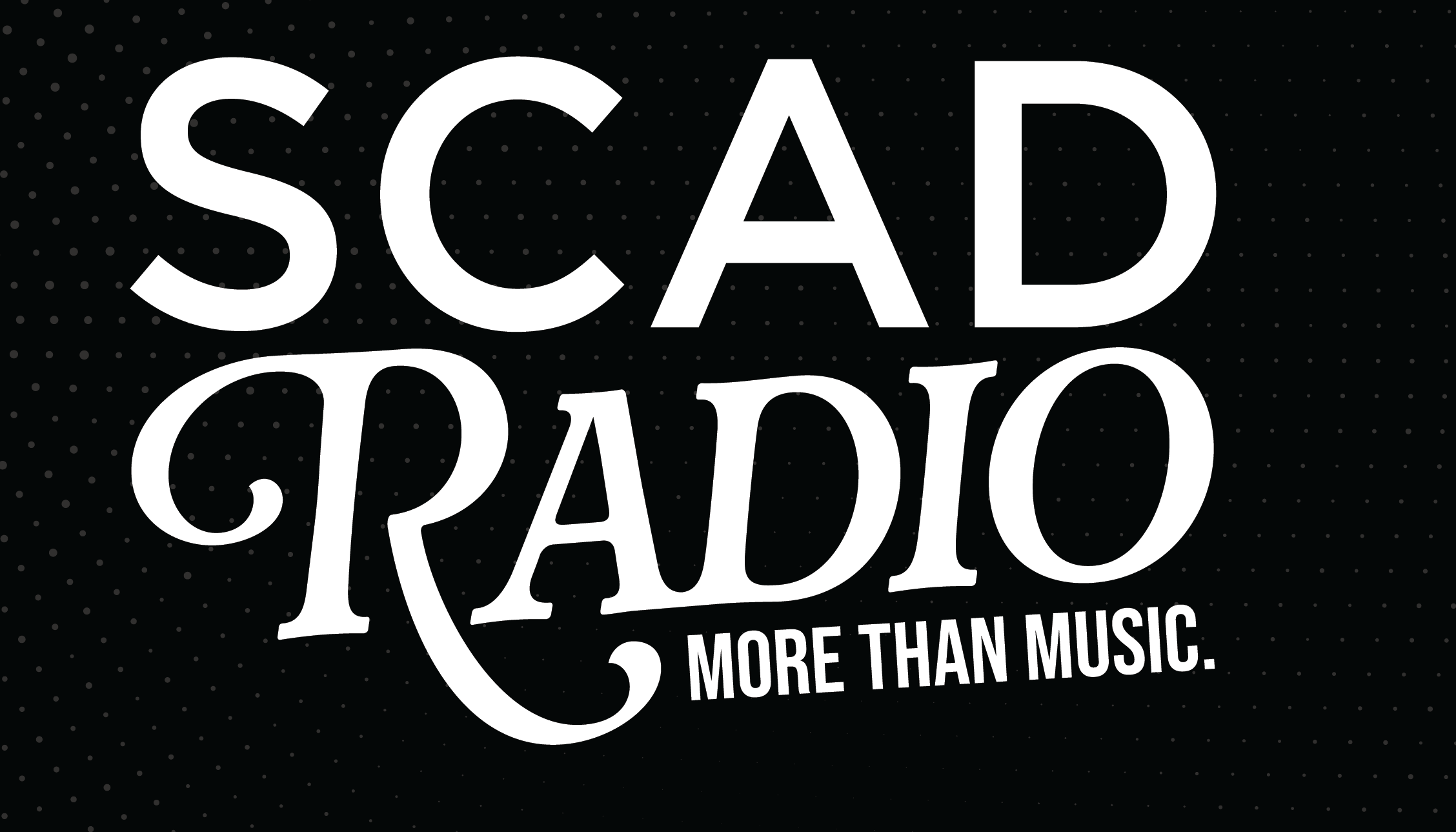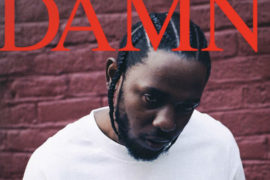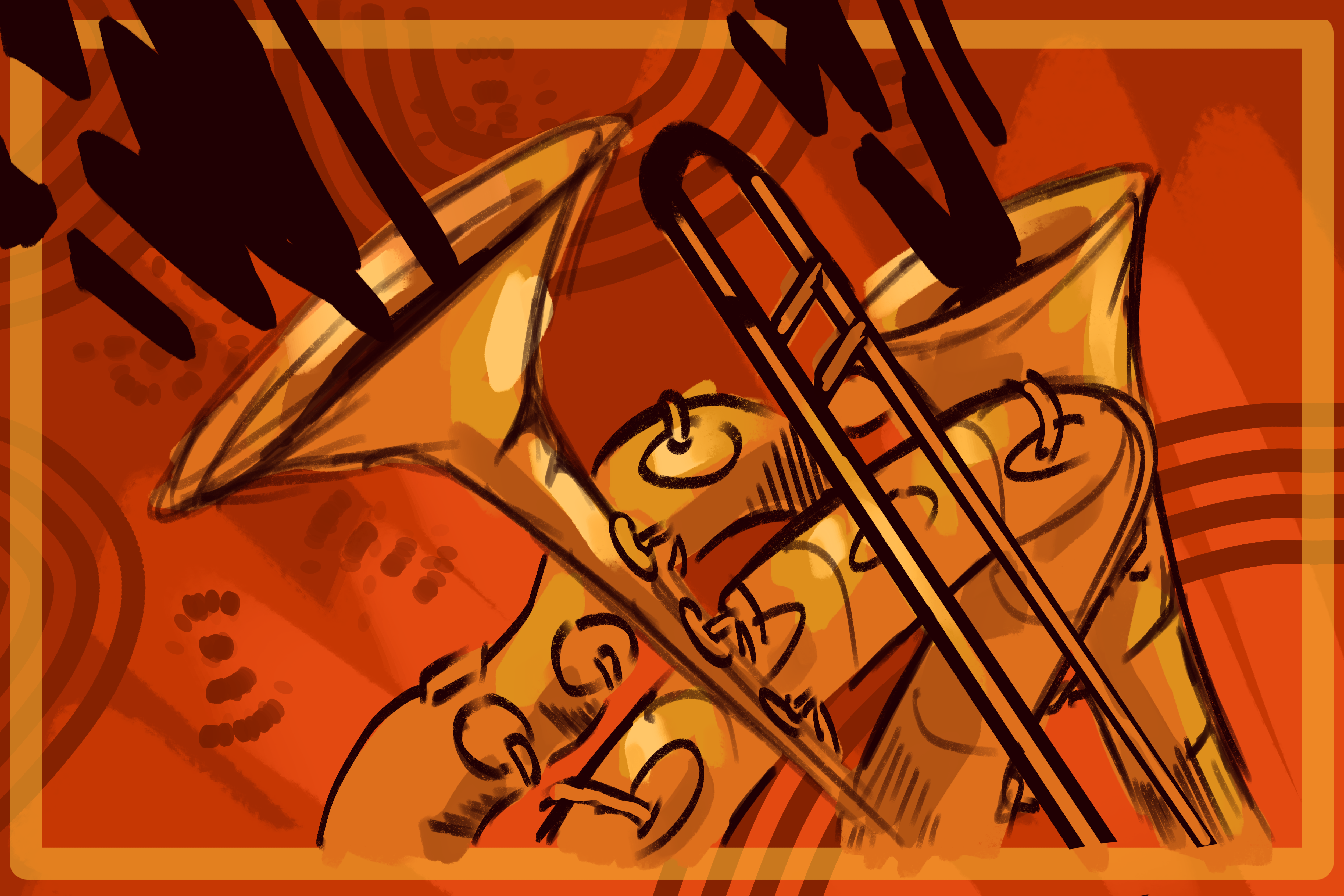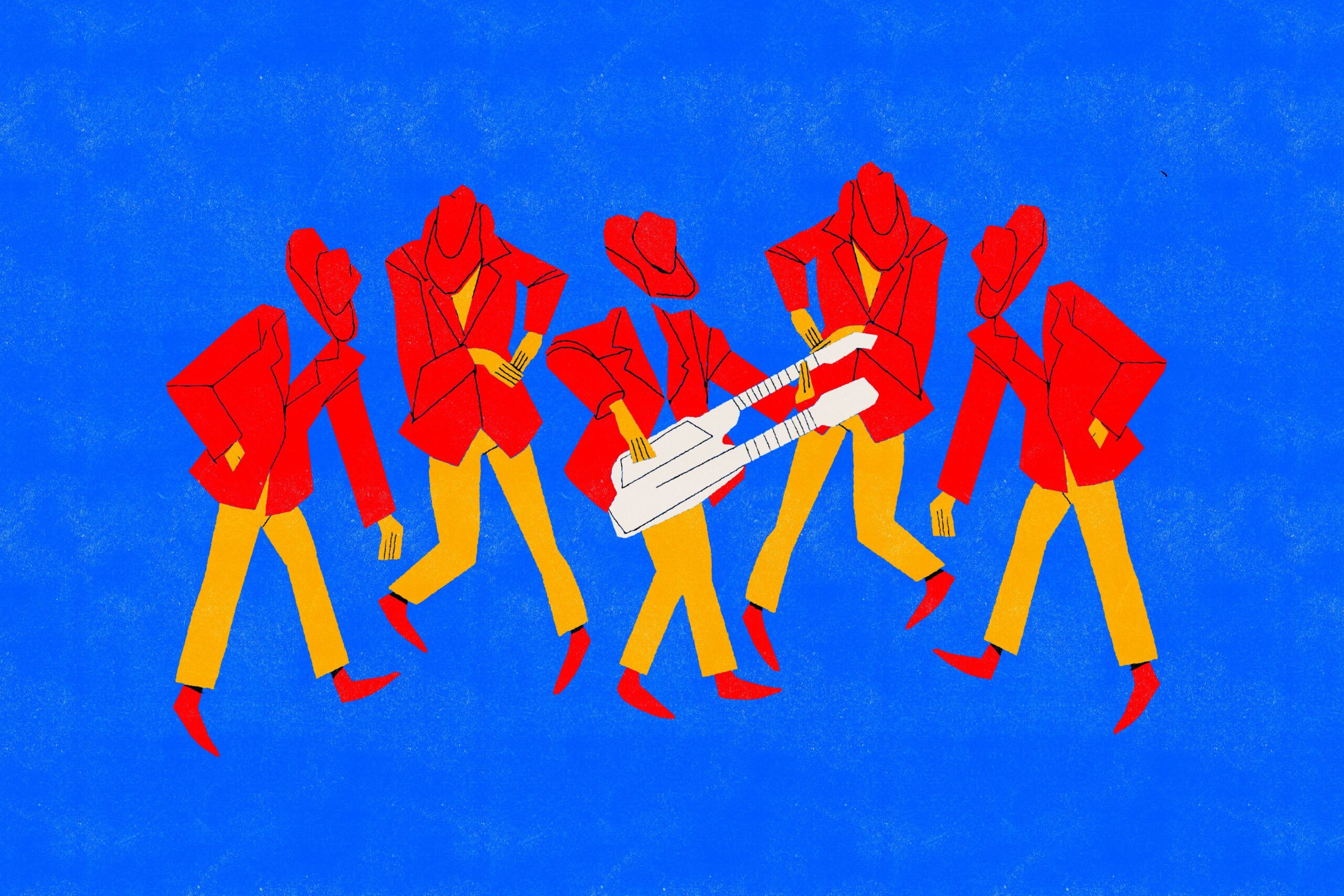This has been quite the rollercoaster. On my first listen, I hated this album. I thought it was tacky, uninventive and safe. I disliked the boring minimalism of the first half, and was too annoyed by the first half to really give the second half a chance. Fortunately, the record has really opened up to me after several listens. I shouldn’t have to listen to a record this many times to determine my opinion, but Kendrick Lamar albums aren’t like most albums. They’re dense, intricate puzzle boxes, guarded by passwords and riddles. So I kept listening. Yes, I wanted to like this album, but I also wanted to give it a fair shake. Some albums just simply don’t sink in on the first listen.
I also think it’s important to know that the Compton MC’s last two albums stand as two of my favorite rap albums of all time. good kid, m.A.A.d city and To Pimp a Butterfly, are in my opinion, stone-cold classics. On the former, Kendrick wove a gripping Boyz in the Hood-esque narrative plucked from his own personal life. On the latter, Kung Fu Kenny just went ballistic, blending P-Funk, freak jazz and spoken word into a kaleidoscopic masterpiece. In my view, it’s the best album of the decade so far. Not just rap. Any album. It was immediate, heartbreaking and awe-inspiring. I still discover new storylines, sonic interludes and anecdotes every time I listen to it.
This album is different. That’s not necessarily a bad thing, because Kendrick proves that he’s willing to reinvent himself once again. He ditches the soupy live bass for the 808 drum machine, a move that gives this album a lot more commercial appeal. While I think it’s a little less sonically inspired, there’s nothing wrong with Kendrick making music fit for a club. In fact, one of his biggest strengths has always been disguising injustice and heartbreak inside enjoyable beats. Swimming Pools (Drank) is a song about the perils of alcoholism that also masquerades as a party jam. Backseat Freestyle is typical rap braggadocio, yes, but it’s being told to us by a narrator who’s deeply unsure of himself. Lastly, King Kunta is a funky call-and-response stomp that directly references Kunta Kinte, the rebellious slave at the center of the miniseries Roots.
When people talk about this album years from now, they’ll talk about how it was just as much of a 180 as To Pimp a Butterfly was. The album starts off typically enough, with a song that sounds like a calm apocalypse. That’s about the best way I can describe BLOOD (all of the songs, like the album, are in all caps and stylized with a period, but I’ll leave that last part out in order to avoid grammatical confusion). It stays that way for about half of its scant running time, before shifting into a looped soundbite of Fox News’ Geraldo Rivera quoting lyrics from Lamar’s 2015 smash Alright, which became an anthem for the Black Lives Matter movement. Kendrick, even more than before, is making his targets known. The song immediately following BLOOD is (fittingly) DNA, which is one of at least two certifiable smashes that will come from this record. The bass on this song is absolutely insane. When played through a subwoofer, it’s loud enough to cause internal bleeding. Seriously. The lyrics are furiously delivered, and they feature Kendrick rapping about his career and his success. The wordplay is clever enough to not come off as purely self-aggrandizing, and it crucially sets up a lyrical touchstone that returns again and again throughout DAMN: Kendrick equating himself with Jesus. It’s a little cocky, but you know what? He backs it up. For the most part.
The next song is YAH, a slow, drawling cut that sounds like the Beatles’ I’m Only Sleeping reimagined as a rap song. It’s a nice come down after the mania of DNA, although it’s not without its standout moments. Kendrick takes aim at Rivera once again, rapping, “Somebody tell Geraldo this n**** got some ambition/I’m not a politician, I’m not ‘bout a religion.” This particular lyric was in response to FOX’s criticism of his performance of Alright at the BET awards, which involved him standing on police cars. Kendrick was dismayed and said, “How can you take a song that’s about hope and turn it into hatred? The overall message is “we’re gonna be alright.” It’s not the message of “I wanna kill people.”” It’s also a response to Rivera’s statement in 2015 where he opined, “Hip-hop has done more damage to black and brown people than racism in the last 10 years.” So yeah, there’s a lot to unpack. But I think it’s important to mention, as it’s a huge part of this album, as well as Kendrick’s work at large.
Following YAH, we have ELEMENT, which is a fun early-sounding Kenny song, but it’s ultimately not that musically inspired. It’s one of the lesser songs on this LP, but it’s got a fun hook which I can’t really repeat here. His flow heavily borrows from New Orleans rapper Juvenile’s 1998 classic Ha – one of the many Southern-inspired songs on this album. Next we have FEEL, which is pretty downbeat and moody for most of its run time until Kendrick loosens up a little bit near the end. It’s got a real nice bassline though. Following this song, we’ve got the first real high-profile feature on this album, in the form of pop queen Rihanna. Her feature is non-intrusive and complements the song nicely, although I would have rather seen another lesser known artist like Anna Wise or Rapsody take her place, both of whom Kendrick has worked with before. All in all, it’s a decent song with a solid hook. I don’t think it’s much more.
Things quickly change for the better, though, as PRIDE is a song that really grew on me. It’s got a wonderfully melancholic, stuttering beat which pairs with Kendrick’s laid-back flow perfectly. He does rap a little slower here, rarely venturing outside the pocket. But man, does it ever sound good. Like a lot of the songs on this album, it doesn’t really shift gears (at least not to the level that Kendrick is known for), but it’s a pleasant and groovy listen. That mood doesn’t stick around for long, as Kendrick’s big new hit HUMBLE comes blasting out of the silence. It’s driven by a somewhat blues-influenced piano riff, but the acidic, industrial screeches that feed into the hook let us know that this is a song designed to be played at maximum volume. It feels a little more shallow than Kendrick’s best work (as does a lot of this album), but I can’t deny how fun it is. LUST shifts the pace once again while also continuing the Southern Hip-Hop influence that permeates much of this record. In fact, it sounds a lot like OutKast’s Vibrate, from their 2003 double album Speakerboxxx/The Love Below. Not that I have a problem with that, because OutKast’s Aquemini is one of my favorite rap albums of all time. The fact remains: Kendrick’s influences have shifted substantially, from the smooth West Coast to the dirty South. He’s dipped into Southern-inspired music before, but he’s full-on embracing it now.
Next comes the slow R&B jam LOVE, which is one of the most conventional songs on this album. However, it’s actually one of my favorites, as the beat reminds me a lot of the “Dire Dire Docks” level from Super Mario 64, which is one of my favorite video game themes ever. So yeah, it’s a personal choice. But I can’t deny that it makes me feel all good inside. Kendrick quickly dispenses with the sweetness on its follow-up, XXX. The U2-featuring track wages war on America itself, and contains some of K-Dot’s (I’m running out of his pre-established nicknames) most pointed and sharp lyrics. He merges the religion motif with politics, with the line “Hail Mary, Jesus and Joseph/The great American flag/Is wrapped with guns and explosives.” It only makes sense that he’d recruit U2, a band that doesn’t often shy away from social commentary. As far as the sound of the song goes, it’s pretty nuts, featuring looped and swirling police sirens before switching gears to Bono crooning over some jazzy bass. The smooth vibe of XXX makes the transition over to the next track, FEAR. It starts off simply enough, before Kendrick starts rapping backwards like he’s stuck in the Black Lodge from David Lynch’s TV seriesTwin Peaks. It sounds pretty awesome, but the track eventually sags under the weight of its nearly 7 minute runtime.
The next track has no such problems. In fact, GOD is probably my favorite song on the album. The beat isn’t really like anything I’ve heard in a Kendrick song, because it sounds like a mixture of Autobahn-era Kraftwerk and The Buggles’ Video Killed the Radio Star. It’s angelic, epic and feels like you’re being carried on a cloud into the sky, which makes a lot of sense considering the song’s title. The album closes with the true-life story, DUCKWORTH (the title refers to Lamar’s real surname). The song begins with one of the few soul samples on the album, and it’s from Ted Taylor’s 1978 song “Be Ever Wonderful.” In fact, this song sounds like more of a throwback than this entire album, which makes sense because Kendrick is delving into his past on this cut. The story in question is how, once upon a time, the CEO of Top Dawg Entertainment Anthony “Top Dawg” Tiffifth almost killed Kendrick’s father when he was working at a KFC. Kendrick spins a riveting story about how the man who owns the record label he’s signed to almost prevented him from being a rapper in the first place, as Kendrick was signed to Tiffifth’s label at the ripe old age of 15. He says, “Twenty years later, them same strangers you make ‘em meet again/Inside recording studios where they reapin’ their benefits/Then you start remindin’ them about that chicken incident/Whoever thought the greatest rapper would be from coincidence?/Because if Anthony killed Ducky/Top Dawg could be servin’ life/While I grew up without a father and die in a gunfight.” Wow. That’s nuts. And quite the way to end an album. But Kenny’s not done. He tacks on a rapidly ascending chorus of backwards vocals, followed by a restatement of the album’s opening line, “So I was taking a walk the other day…” It’s weird and abstract, but it sounds great. He absolutely sticks the landing.
All in all, I’m not sure what to make of this album. Kendrick occasionally comes off as bored, and it lacks his singular voice and vision that I felt on his past two albums (by the way, I like his first album, Section.80, but it’s clearly a stepping stone for his other releases). DAMN’s got a lot of thoughtful and punchy lyrics, but too often they don’t register as politically urgent or personal enough to really hit home with me. One of the reasons I’ve really taken to Kendrick’s music over the past few years has been his willingness to not talk about things other rappers talk about, or at least doing so through a different lens. He falls into the trap of conventionality a few too many times on this album for my taste. However, the fact remains: there are some really great songs on here, and no real stinkers. There’s just a glut of OK to pretty good ones. Yes, he deserves praise for constantly reinventing himself, but I have to be honest. It isn’t what I wanted from him, but I also think it’s just not as consistent an album as ones he’s produced in the past.
Overall, DAMN is a pointed statement and a much-needed call to arms for the rap game at large. Even though the album has grown on me since its release, I can already sense some of my favorite songs getting stale. It simply doesn’t have the wealth of unpredictability and deeply emotional introspection that his last two records had, but like always, I can’t wait to hear what he does next. One thing’s for sure: this is an interesting album, replete with political jabs, Christian metaphors and narrative enigmas. Yet it lacks a distinct musical identity, and the Southern stylings don’t quite always match up with Kendrick’s flow. It doesn’t feel quite vital enough to be a purely political album, and it seems a little too cold and distant to be an examination of his psyche. Instead, it sits somewhat uncomfortably in the middle.
It hasn’t been out long enough for me to really digest it all and offer a scholarly analysis of its lyrics and its place in our popular culture, but I don’t know if you’d want to read that anyway. Instead, I can only tell you about how the album made me feel. I’ll state it as simply as I can: DAMN is well worth a listen, but I just can’t shake the feeling that years from now, when I get a sudden urge to listen to Kendrick Lamar, I won’t reach for this album first.

3.5 out of 5 Geraldo Riveras






Leave a Reply